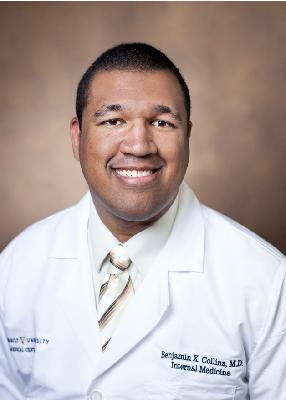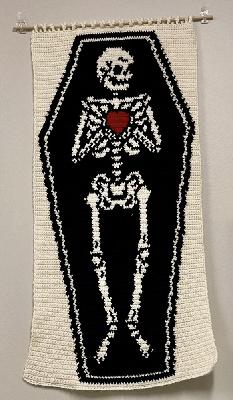Getting Clear on DNR Order with Stephanie Van Slyke
Description
In this episode, Stephanie Van Slyke helps us to understand DNR orders and her success in helping clinical staff understand what they mean.
Transcript
Welcome to this episode of Bioethics for the People, the most popular podcast on the planet according to Grandma Nancy. I'm joined by my Co host Doctor Tyler Gibb, who if he weren't here recording right now, would probably be golfing. And I'm joined by my Co host Doctor Devin Stahl, who dutifully completes the same 5 New York Times puzzles every day.
All right, so Tyler, we have a fellow Michigander in the house. I prefer the term Michigan gangster. Oh well, that sounds like a bumper sticker but OK. Yeah, good friend of ours from up north as as we say here in Michigan, right.
So Stephanie is a clinical ethicist up north in one of the health systems around the very tip of the mitten, as we say.So, Stephanie, do you want to introduce yourself, please?Thanks, Ty.Good to see you both.And Devin.So yes, I am a nurse by practice, I guess, if that's what you want to call it.
But most of my nursing career has been in a hospital as an ICU nurse, which just kind of naturally drew me down the path of ethics because of a lot of the complexities that we find as an as an ICU nurse.And I've since kind of moved away from the bedside and now leader ethics consult service here at at the hospital.
A nurse ethicist?I'm trying to think I know a few, but it's actually not the more common path.It makes total sense to me that as a nurse at the bedside, you're seeing a lot of ethics issues and it would move you that way.And yet I haven't met a ton of clinical ethicists who also practice or at one point practiced as a nurse.
So you're this wonderful Unicorn in our space.Oh, thank you, Devin.I prefer gangster.Oh, right, right, right.Sorry.Come on, Devin, keep up.OK.So Stephanie, you're going to talk about a success story, right?
And so often in our world, we deal with the the difficult and the heavy and the dark kind of side of healthcare.But we wanted to highlight some things that have gone well or successes that people have had in their clinical ethics space.So tell us what you got from up north.
Thanks Ty.So this really stems from circumstances when I was still at the bedside.This goes way back to like 2014.I'll never forget this patient.I'll never forget this situation where the patient had ADNR order and I had interpreted it one way.
And come to find out there were other colleagues of mine who had interpreted what that meant differently.And she experienced a medical emergency and we didn't know what to do.We didn't know how to intervene.And it's kind of haunted me ever since that did I do the right thing?
Even though I called the provider and described what was going on, there wasn't a clear understanding of how far do we intervene and what does her do not resuscitate order mean.And so it really led me to ever since then dig deep into the literature that's out there.
And thankfully I found a whole bunch of it.But more importantly, just within my organization, we did just a survey of staff to say how do you interpret DNR?And at that time, what was interesting is we had a long list of options that people could choose from around code status, which I think was another complicating factor.
So we had a limited code option.We're essentially code status was presented to patients and families as a menu of options to choose from.Which isn't it?Which I don't think was really that uncommon during that time.
I think a lot of the other healthcare systems that I've worked with or worked for also had similar, like you said, a menu where it's, and let's talk through some of the options that somebody might have in this menu, right?So the obvious one is compressions for cardiac arrest, right?
Do you want that or do you not want that?So what are some other ones that people could choose?Yeah, whether or not you wanted to be intubated, whether or not you wanted a central line or transferred to a higher level of care, ours also included, do you want to be defibrillated?
Do you want to be given meds?You know, so this just madding, if you will, assortment of options for one particular procedure that really encompasses all of that.So it really put the nurses and staff in a tough position of, you know, what do I do and what don't I do?
It might be helpful to take like just one step back and say, OK, so ADNR order is a physician order.So it's not something that the patients elect outside of, you know, a situation in which the doctor orders this for them.But it's really if your heart stops, if you have a cardiac arrest, what do you want us to do?
Do you want us to let you die?You know, your heart stops, you are dead.Do you want us to try to revive you or do you not want that?And if you say yes, there's a whole lot of things that go into that because the protocol says that you have to.All those things you just named on that menu have to happen for a resuscitation attempt to be successful.
It's very unusual for CPR to work at all.Right.So do you know the current stats on in hospital cardiac resuscitation?Yeah, from some of the studies that I read for in hospital cardiac arrest, the success rates have been shown to be anywhere between 20 and 40%.
Outside of a hospital, it's much lower, 10 to 15%.But I think that the the key thing here is how do we define success?Is it merely just getting a heartbeat back?Because we know there are a lot of other kind of ailments that occur because of CPR itself.
And are, are those acceptable ways of living for some people, some of the conditions that they're that they're left in the loss of independence, so on and so forth.So you know, I think there's, there's a lot to be said about how do we define success?Because yes, if we're thinking about was CPR successful?
And if it did return a heartbeat, then yes, it was successful.But is that truly what we're looking for?Right.Most people will say it's only successful if, like, then they can get out of the hospital, right?They're not thinking I'm going to be intubated for the rest of my life.I might be unconscious for the rest of my life.
Those might be unacceptable successful outcomes.So even in that kind of small percentage, because you watch, you know, Grey's Anatomy and everybody just like gets resuscitated and they bounce out and they go, thank you so much.And they leave the hospital immediately.That doesn't happen.It's very violent.
We're breaking ribs often, So.And even then, even if success is only just getting it back, it's still pretty low.And as far as I know, if you don't do all the things that are required for cardiac resuscitation, there's no chance it works even getting your heartbeat back.
So you know, offering people like menu options doesn't make a lot of logical sense because it only works if you do all of it.Yeah, that certainly is the way that I approach it, much like you would a surgery, right?We're never going to offer somebody open heart surgery and then give them a list of options to choose from that are part of that surgical procedure, right?
It just, it's illogical and why CPR is kind of morphed into this menu of options is just fascinating to me.But the other piece I did want to add that that I think is a contributing factor to this.It's not only the list of menu options, but the wide range of code status options that I see among healthcare systems.
It's not all the same.So if a patient is taken care of in my health system, we have one particular policy that says these are your options.But if they go to a, a hospital, you know, downstate, it's very different.And so we're creating this confusion not only among the community, but also within our own profession of, of people really that should know what this means and should know how to intervene when somebody experiences cardiac arrest.
Something else I've seen in hospitals it worked in that creates confusion is some people think that if you're DNR, it means you don't want aggressive treatment in general, right?So if you're not willing to be resuscitated, if your heart stops, you're not willing to undergo other kinds of aggressive procedures.
And that is not true typically.So you can have in our hospital system somebody who says, OK, if my heart stops, that's the end of it.You can stop treating me.But until that time, I want you to try to do everything you can to keep me alive.It's just like, at that point, I want to stop.
If my heart stops, let it be stopped.But I want chemotherapy, and I want maybe to be ventilated or intubated if I need that.I might want all sorts of things unrelated to cardiac arrest, but that's my stopping point.Whereas other people might be at the point where they're saying I don't want anything aggressive. </p


















